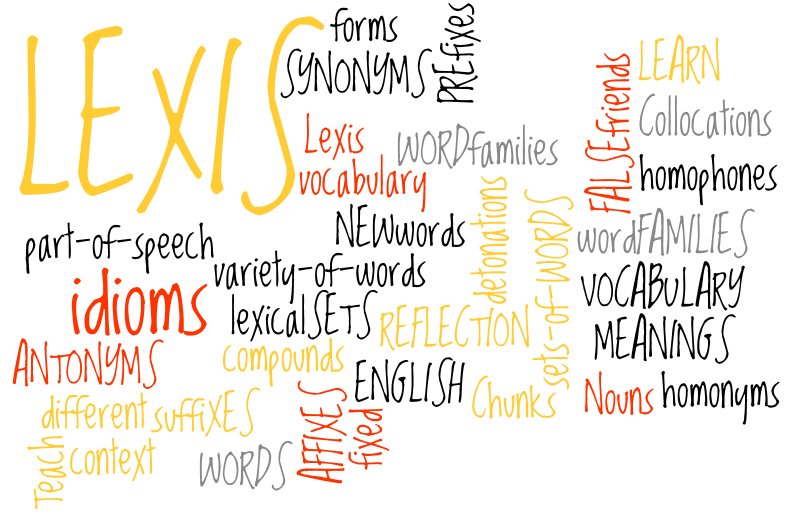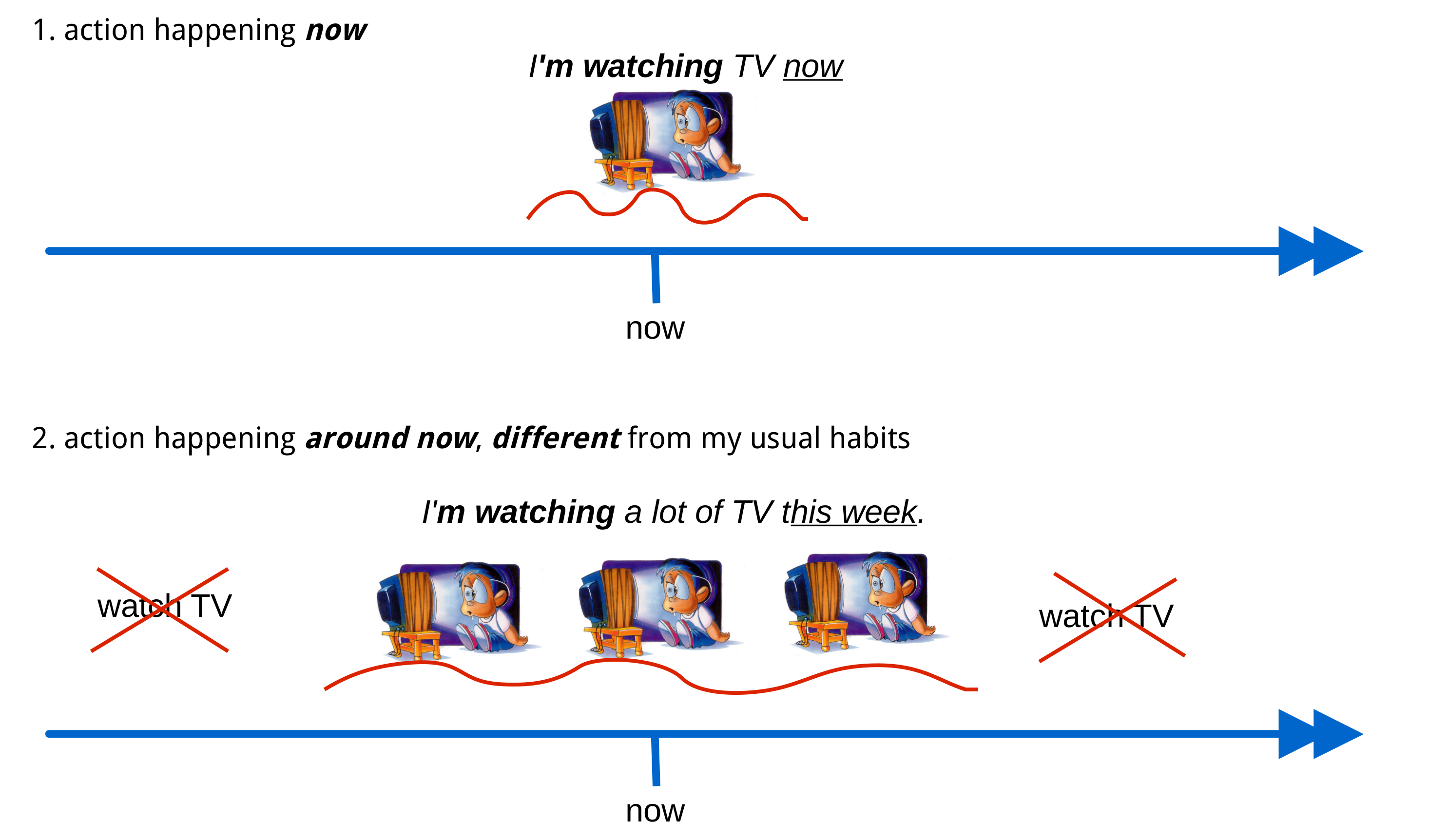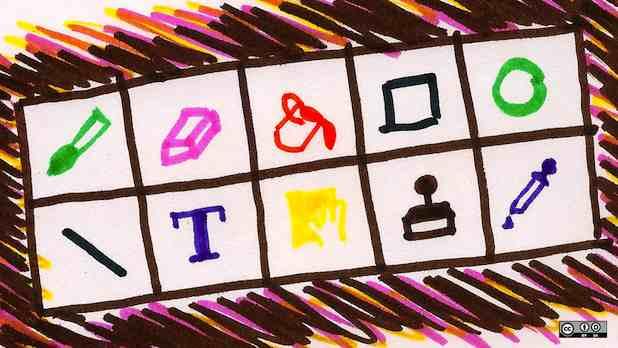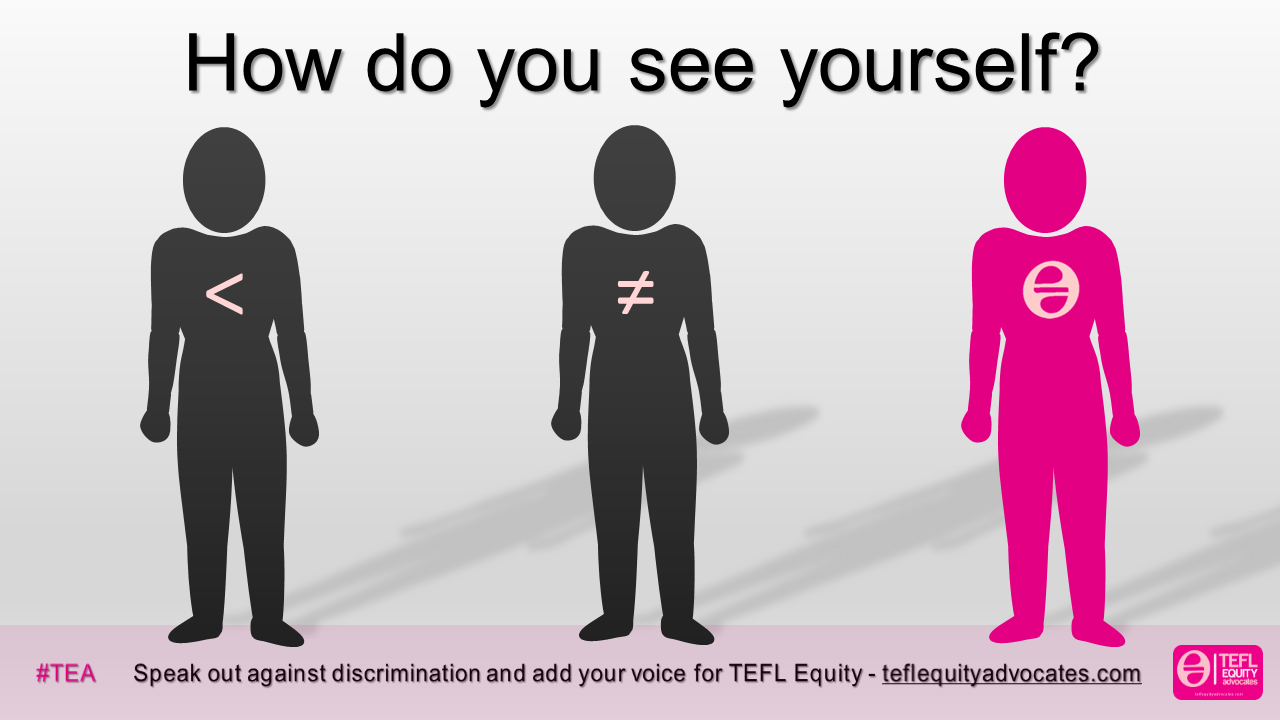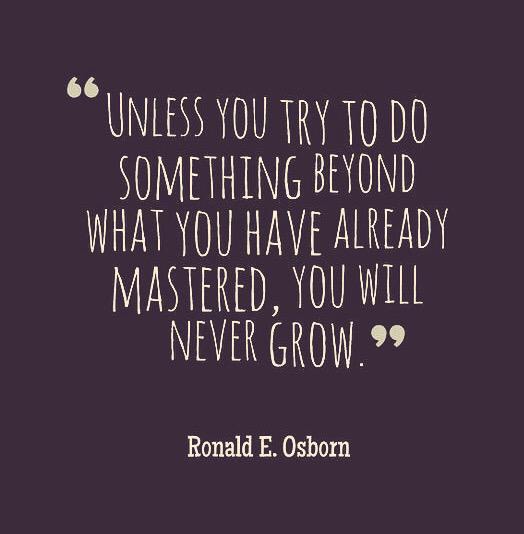In the online Delta course I’m following, one of the tasks for the lexis unit required us to take notes on why sense relations can facilitate vocabulary learning and make lessons more interesting. It also required us to refer to examples of classroom activities and specific teaching strategies which we have used or intend to use. Continue reading “Delta task: Why teach sense relations”
Present tenses timelines
Sometimes as teachers we take the present tenses for granted, especially with higher level students. However, as Parrot points out in his Grammar for English Language Teachers, students often have difficulties choosing the correct tense and tend to overuse the present simple.
That’s the reason why I created a series of timelines to visualise the differences between present simple and present continuous. Today I would like to share these with you, hoping they might be useful to your students as they seem to be to mine. Continue reading “Present tenses timelines”
New post series: Delta Tasks
Just a quick update: following Anne’s advice I will be posting tasks and reflections I have been doing while working on the online Delta Module 1 preparation course I’m attending.
The posts will be mostly my own reflections on the tasks, to which anyone is welcome to add their thoughts or ideas. Their purpose is only to clarify the topics in my head and possibly to get some feedback from colleagues.
Giulia
Five things I love about being a teacher
I know, this post might be a bit cheesy, but today I feel positive so I’d like to share with the blogosphere the reasons why I love teaching, and particularly teaching English in a language school (as opposed to teaching in a primary or secondary state school). Here it goes. Continue reading “Five things I love about being a teacher”
Freedom in the classroom: Open Sankoré
Some time last year I wrote a couple of posts on using free software in the classroom: I briefly explored the ethical and practical benefits, as well as recommending some interesting software I use every day for work.
In the school where I work now we (unfortunately) run MS Windows in all the classroom computers, but there is a piece of good news: instead of expensive — and not always reliable — proprietary software, we use a powerful free interactive whiteboard called Open Sankoré. Continue reading “Freedom in the classroom: Open Sankoré”
How to be a confident NNEST
Many things have already been written and said about the topic of NNEST equality in ELT. However, what can we do as NNESTs to improve our self-confidence and how students and employers see us?
Last week I read this excellent post by Elly Setterfield, which got me thinking about how I see myself as a non-native English speaking teacher. In her post, Elly debunks the myth that students prefer native teachers, adding some excellent advice on how to build your confidence as a NNEST. Continue reading “How to be a confident NNEST”
Challenges for 2017
Here we are, the holiday season is over so we are now facing seven months of almost uninterrupted work. This is quite exciting, but also scary as I am going to face a number of challenges that will make everything harder. I think I’ll need to have all my ducks in a row if I want to survive these coming few months.
[This post is just a reminder of what awaits me in this new year. In the future I’m going to write something on how I have organised my time and energies to deal with all this.] Continue reading “Challenges for 2017”
Two years blogging: Happy 2017!
I started this blog on 1st January 2015, so today marks the second ‘birthday’ of this blog. Unfortunately, I haven’t been able to keep it updated regularly, but one of my 2017 resolutions is working on this.
I’m immensely grateful to all the colleagues and strangers who passed by, left a comment or a ‘star’, contributing to the discussion and making this blog what I hoped it would be — a place to exchange ideas, experiences and inspiration with fellow teachers.
Wish you all a wonderful 2017, hoping things get better in the world — and in your personal life too.
xx
Giulia
Closed for the Holidays
Reflections on lesson planning
Some time ago we had a training session about lesson planning at our school. Due to quality standards, we are required to write formal lesson plans for every lesson we teach, which can be quite overwhelming when you teach an average of 25-30 hours a week.
So to vent my frustration I went online and had a very positive conversation on Twitter with Vendrana, Laura, Maria, Liam and Gemma about the issue, where they suggested different ways to keep lesson planning effective while cutting the actual time spent writing plans. Continue reading “Reflections on lesson planning”
